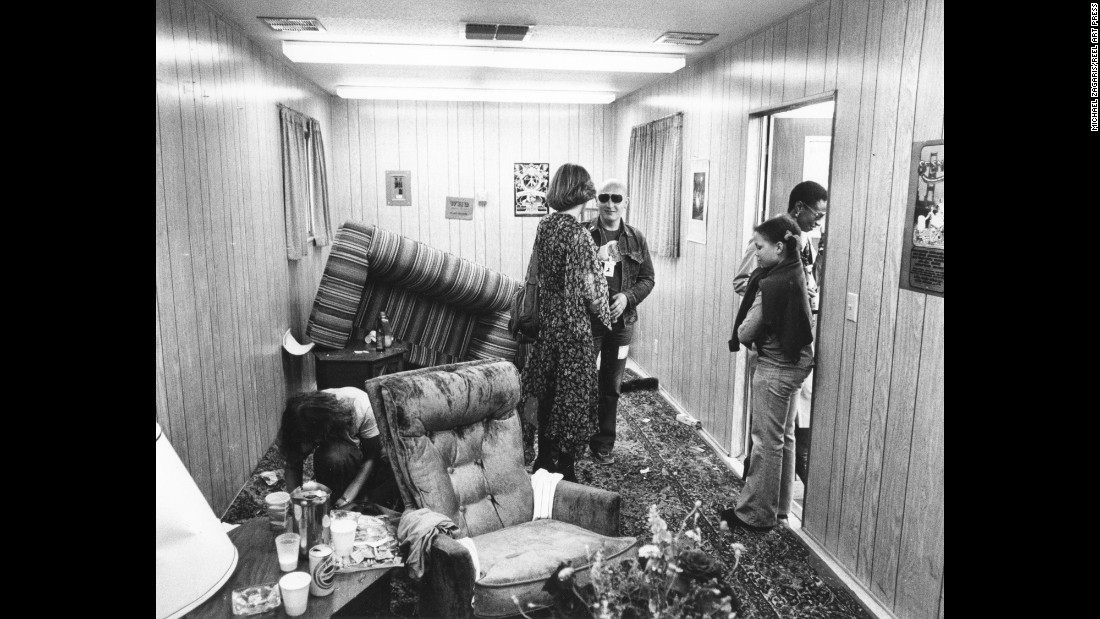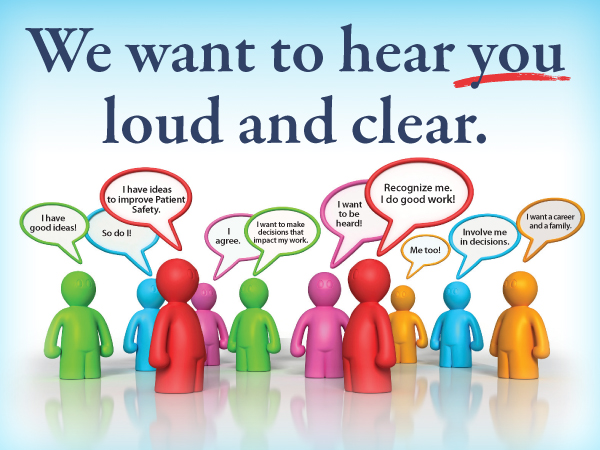Sunday, July 22, 2018
The Beechmont Beerware Hotel Development Index
This is something new that we got our guys started on, and got to thinking, we could work it into something useful that we could charge for. It's still a work in progress, so we use a 'beerware' pricing model (only charging real money for custom work)
Over time, we'll refine it. We're also going to add marketing data such as traffic and demand generators.
Thank you for your support.
Click here for the index.
Over time, we'll refine it. We're also going to add marketing data such as traffic and demand generators.
Thank you for your support.
Click here for the index.
Monday, July 9, 2018
How to Retain Employees Better... By Asking These 10 Simple Questions
Seth's Blog : "Hit the red button"
"Hit the red button"
Everyone on your team should have one.
When we hit the button, it instantly alerts the CEO or someone who willingly takes responsibility for what happens next.
And then the question: What are the circumstances where an employee should (must) hit the red button?
Everyone on your team should have one.
When we hit the button, it instantly alerts the CEO or someone who willingly takes responsibility for what happens next.
And then the question: What are the circumstances where an employee should (must) hit the red button?
Consider:
The red button makes it clear to your team that they should either solve important problems on the spot or let you do so, and that not treating a problem seriously is not an option.
And if you don't treat your project seriously enough to have a button, if there isn't a culture where you want people to either fix these sorts of problems or get them looked at immediately, why not?
We can compromise our way into just about anything. At least do it on purpose.
- A sexual harassment complaint
- A customer leaves over poor service
- There's pressure to ship inferior or dangerous products
- The wait in the customer service queue passes 8 minutes
- Any other combination of bribery, racism, dumping of effluents, breaking promises, cooking books, lying to the public, etc....
The red button makes it clear to your team that they should either solve important problems on the spot or let you do so, and that not treating a problem seriously is not an option.
And if you don't treat your project seriously enough to have a button, if there isn't a culture where you want people to either fix these sorts of problems or get them looked at immediately, why not?
We can compromise our way into just about anything. At least do it on purpose.
The 4 Questions Your Recruiters Need to Ask Their Candidates!
What are some less-than-desirable innovations you’ve noticed in modern hotels?
Those weenie little ‘pod-type’ front desks.

You’d think if you’re making an $8–10mil investment in a new hotel, you can tell the architect, builder or brand rep, pound sand, we’re going to stick to what works. But if it’s a new construction brand with that part of the design as a brand standard, you’re stuck with it.

I can understand why they wanted to go with something different. Historically, not a whole lot of work or planning has gone into front desk design in hotels. The front desk was basically a four-foot high countertop, with work surface, recordkeeping and storage faciities on the side facing the clerk.
If you’re checking into a hotel, your first stop is at a counter about the height of a judge’s bench in a courtroom, or the ‘service’ counter at the DMV. It’s disempowering. You’re approaching a counter from which emanates a lot of power and authority and one-sided discretion, but from which you don’t really expect caring service. It lacks warmth: the clerk is dealing with you behind a large physical barrier.
But the solution they came up was not altogether good.
You’d think if you’re making an $8–10mil investment in a new hotel, you can tell the architect, builder or brand rep, pound sand, we’re going to stick to what works. But if it’s a new construction brand with that part of the design as a brand standard, you’re stuck with it.
I can understand why they wanted to go with something different. Historically, not a whole lot of work or planning has gone into front desk design in hotels. The front desk was basically a four-foot high countertop, with work surface, recordkeeping and storage faciities on the side facing the clerk.
If you’re checking into a hotel, your first stop is at a counter about the height of a judge’s bench in a courtroom, or the ‘service’ counter at the DMV. It’s disempowering. You’re approaching a counter from which emanates a lot of power and authority and one-sided discretion, but from which you don’t really expect caring service. It lacks warmth: the clerk is dealing with you behind a large physical barrier.
But the solution they came up was not altogether good.
Seth's Blog : Our pre-judgment problem
Our pre-judgment problem
Most of us can agree that picking a great team is one of the best ways to build a successful organization or project.The problem is that we're terrible at it.


Most of us can agree that picking a great team is one of the best ways to build a successful organization or project.The problem is that we're terrible at it.
The NFL Combine is a giant talent show, with a billion dollars on the line. And every year, NFL scouts use the wrong data to pick the wrong players (Tom Brady famously recorded one of the worst scores ever 17 years ago). Moneyball is all about how reluctant baseball scouts were to change their tactics, even after they saw that the useful data was a far better predictor of future performance than their instincts were.
And we do the same thing when we scan resumes, judging people by ethnic background, fraternity, gender or the kind of typeface they use.
The SAT is a poor indicator of college performance, but most colleges use it anyway.
Famous colleges aren't correlated with lifetime success or happiness, but we push our kids to to seek them out.
And all that time on social networks still hasn't taught us not to judge people by their profile photos...
Most of all, we now know that easy-to-measure skills aren't nearly as important as the real skills that matter.
Everyone believes that other people are terrible at judging us and our potential, but we go ahead and proudly judge others on the basis of a short interview (or worse, a long one), even though the people we're selecting aren't being hired for their ability to be interviewed.
The first step in getting better at pre-judging is to stop pre-judging.
This takes guts, because it feels like giving up control, but we never really had control in the first place. Not if we've been obsessively measuring the wrong things all along.
And we do the same thing when we scan resumes, judging people by ethnic background, fraternity, gender or the kind of typeface they use.
The SAT is a poor indicator of college performance, but most colleges use it anyway.
Famous colleges aren't correlated with lifetime success or happiness, but we push our kids to to seek them out.
And all that time on social networks still hasn't taught us not to judge people by their profile photos...
Most of all, we now know that easy-to-measure skills aren't nearly as important as the real skills that matter.
Everyone believes that other people are terrible at judging us and our potential, but we go ahead and proudly judge others on the basis of a short interview (or worse, a long one), even though the people we're selecting aren't being hired for their ability to be interviewed.
The first step in getting better at pre-judging is to stop pre-judging.
This takes guts, because it feels like giving up control, but we never really had control in the first place. Not if we've been obsessively measuring the wrong things all along.
End of an era: Even smokers have made their peace with "100% smoke free" hotels.
Labels:
"Guest Writers",
Guest relations,
Housekeeping,
Maintenance,
Non-smoking
Should hotels be financially liable for damage caused by bed bugs?
Conceivably, they could be — if you can show that you didn’t bring them into the hotel yourself. And that's easier said than done.
Two misconceptions about bedbugs: people tend to associate them with nasty people with bad hygiene, and people tend to associate them with bad housekeeping. Both associations are fallacious. Bedbugs are no respector of hygiene. They feed on blood, not dirt.

Even the Beverly Hills Hilton or the Fontainebleu get bedbugs. Any hotel can, if a guest brings them in. There’s nothing you can do if you get an infestation in a room except close the room down and treat it. (Right away. Before they spread to any other rooms, or you rent that room to another guest.)
How do they come in? On your baggage. I’m not suggesting you’re a nasty person if I suggest you could have brought them in yourself — you or I could bring bedbugs into a hotel, if they come in on our bags, if you checked your bags at the wrong baggage area at the wrong airport.
How to Avoid Bedbugs on Vacation
Don’t Let the Bed Bugs Win
Bedbugs Discovered in Winston-Salem Bus Depot
Once you’ve been exposed, they’ll even get into your home.
Two misconceptions about bedbugs: people tend to associate them with nasty people with bad hygiene, and people tend to associate them with bad housekeeping. Both associations are fallacious. Bedbugs are no respector of hygiene. They feed on blood, not dirt.

Even the Beverly Hills Hilton or the Fontainebleu get bedbugs. Any hotel can, if a guest brings them in. There’s nothing you can do if you get an infestation in a room except close the room down and treat it. (Right away. Before they spread to any other rooms, or you rent that room to another guest.)
How do they come in? On your baggage. I’m not suggesting you’re a nasty person if I suggest you could have brought them in yourself — you or I could bring bedbugs into a hotel, if they come in on our bags, if you checked your bags at the wrong baggage area at the wrong airport.
How to Avoid Bedbugs on Vacation
Don’t Let the Bed Bugs Win
Bedbugs Discovered in Winston-Salem Bus Depot
Once you’ve been exposed, they’ll even get into your home.
Labels:
Bedbugs,
Guest relations,
Housekeeping,
Maintenance
Seth's Blog : Training customers
Training customers

If you frequently run last-minute sales, don't be surprised if your customers stop buying things in advance. You're training them to wait.
If you announce things six or seven times, getting louder each time, don't be surprised if your customers ignore the first few announcements. You've trained them to expect you'll yell if it's important.
If you don't offer someone a raise until they find a new job and quit, don't be surprised if your employees start looking for new jobs.
The way you engage with your customers (students/bosses/peers) trains them on what to expect from interactions with you.
Drip, drip, drip.
If you announce things six or seven times, getting louder each time, don't be surprised if your customers ignore the first few announcements. You've trained them to expect you'll yell if it's important.
If you don't offer someone a raise until they find a new job and quit, don't be surprised if your employees start looking for new jobs.
The way you engage with your customers (students/bosses/peers) trains them on what to expect from interactions with you.
Drip, drip, drip.
As hotel housekeeping, what was the worst room you’ve had to clean?
I wasn't the housekeeper in either of these cases, but each is an example of why I'm grateful that those housekeepers are there, so I don't have to go in and clean up a mess like this.
An owner up in Connecticut took in a homeless guy and gave him a room and a hundred bucks or so a week in exchange for doing a lot of the maintenance around the place. About three months later when he began backsliding into his uncontrolled alcohol and substance abuse and it came time to vacate him out of there, the entire floor of the room in which he'd been living — with two cats, no less — was ankle-deep in garbage and cat poop. (The urine merely soaked into the carpet, which had to be replaced along with the mattresses and all soft goods.)

And then there were the two old guys who checked into a double room at a low end hotel here in Winston-Salem early on a Friday afternoon with several bottles of booze, paid in advance for three nights, and settled in on a hard, weekend-long drinking binge. Whenever either of them had too much and had to throw up, they just leaned over and puked right there on the floor between the two queen beds. Repeatedly. All through the weekend. After they left without checking out Monday morning, the housekeepers found a pile of accumulated vomit in that spot. The maintenance guys flipped for it to decide which one of them would be stuck with the job of heading down there with a flathead shovel to shovel it out. That room also got new carpet.
If you run a hotel, always treat your housekeepers with kindness and respect, and occasionally show a little gratitude and do a little extra for them. It's a dirty, nasty, not very well-compensated job, but they're what keeps you from having to put on an apron, roll out a cart, and go up there and do it.
Originally appeared on Quora
An owner up in Connecticut took in a homeless guy and gave him a room and a hundred bucks or so a week in exchange for doing a lot of the maintenance around the place. About three months later when he began backsliding into his uncontrolled alcohol and substance abuse and it came time to vacate him out of there, the entire floor of the room in which he'd been living — with two cats, no less — was ankle-deep in garbage and cat poop. (The urine merely soaked into the carpet, which had to be replaced along with the mattresses and all soft goods.)

And then there were the two old guys who checked into a double room at a low end hotel here in Winston-Salem early on a Friday afternoon with several bottles of booze, paid in advance for three nights, and settled in on a hard, weekend-long drinking binge. Whenever either of them had too much and had to throw up, they just leaned over and puked right there on the floor between the two queen beds. Repeatedly. All through the weekend. After they left without checking out Monday morning, the housekeepers found a pile of accumulated vomit in that spot. The maintenance guys flipped for it to decide which one of them would be stuck with the job of heading down there with a flathead shovel to shovel it out. That room also got new carpet.
If you run a hotel, always treat your housekeepers with kindness and respect, and occasionally show a little gratitude and do a little extra for them. It's a dirty, nasty, not very well-compensated job, but they're what keeps you from having to put on an apron, roll out a cart, and go up there and do it.
Originally appeared on Quora
Best Western Is Testing Voice-Activated Rooms
Seth's Blog : Whose business are you minding?
Whose business are you minding?

Industries have rules. Rules and benefits.
Hollywood requires agents, casting calls, big budgets and content aimed at a certain part of a certain market. If you follow enough of the rules, the thinking goes, you get a multi-million dollar budget and the red carpet.
Broadway requires a certain length, certain compromises, certain deals. This creates scalpers and hangers on and small audiences filling small theaters. And, if you follow just enough of the rules, you might end up with Hamilton. Perhaps one in 10,000 pull this off.
Publishing requires a fealty to the book and to the bookstore, alliances with the right cultural forces and a willingness to create scarcity. If you're persistent and very, very good, you can get picked by the New Yorker and you get picked by Little, Brown and you end up with The Tipping Point. Perhaps one in 100,000 pull this off.
Outsiders who want in, who want to make their mark in movies or investment banking or in politics often decide that minding the business of their industry is the way to reach their goals. After all, it's the insiders that win the awards and get the benefits that go to people who are by and for their industry.
But what if instead of focusing on the industry, you focused on the change you seek to make? On the audience you seek to serve. On doing your customers' business, not the industry's...
It's not in any of the manuals, but the door is wide open, the path is far wider and you can start today.
Hollywood requires agents, casting calls, big budgets and content aimed at a certain part of a certain market. If you follow enough of the rules, the thinking goes, you get a multi-million dollar budget and the red carpet.
Broadway requires a certain length, certain compromises, certain deals. This creates scalpers and hangers on and small audiences filling small theaters. And, if you follow just enough of the rules, you might end up with Hamilton. Perhaps one in 10,000 pull this off.
Publishing requires a fealty to the book and to the bookstore, alliances with the right cultural forces and a willingness to create scarcity. If you're persistent and very, very good, you can get picked by the New Yorker and you get picked by Little, Brown and you end up with The Tipping Point. Perhaps one in 100,000 pull this off.
Outsiders who want in, who want to make their mark in movies or investment banking or in politics often decide that minding the business of their industry is the way to reach their goals. After all, it's the insiders that win the awards and get the benefits that go to people who are by and for their industry.
But what if instead of focusing on the industry, you focused on the change you seek to make? On the audience you seek to serve. On doing your customers' business, not the industry's...
It's not in any of the manuals, but the door is wide open, the path is far wider and you can start today.
Should you go modular with your next hotel?
Subscribe to:
Comments (Atom)











/cdn.vox-cdn.com/uploads/chorus_image/image/55058221/british-airways-heathrow.0.jpg)

